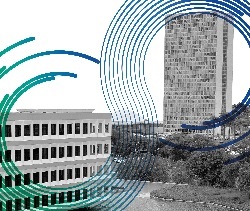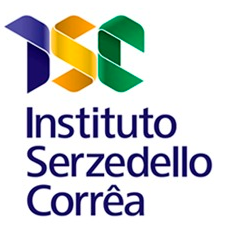Tribunal de Contas da União
Letter from the Chair of INTOSAI - December 2023

We are living in a time of profound transformation, driven by an unprecedented pace of technological innovation. Digital transformation is fundamentally reshaping every facet of our lives, from the way we communicate and work to how we learn and engage with society. In the coming years, applications powered by disruptive technologies such as artificial intelligence, blockchain, the metaverse, and virtual reality will become indispensable for the daily task performance. Governments are no exception to this trend.
The digital transformation of governments is an urgent need and an opportunity to improve the efficiency, transparency, and accountability of public institutions. When technology is used to provide public services in a more accessible and convenient way to citizens, especially those living in remote or marginalized areas, it promotes social and economic inclusion, contributing to the achievement of the United Nations Sustainable Development Goals.
Nevertheless, digital transformation also presents significant challenges. The first is to ensure adequate infrastructure for the delivery of digital services, thereby ensuring equitable accessibility and usability for all citizens. Information and cybersecurity are also paramount concerns, as the risk of cyberattacks escalates alongside the digital transition of government services. The ever-growing importance of personal data protection demands robust security information systems. Governments, therefore, have a fundamental responsibility to ensure that these systems are resistant to cyber threats, implementing comprehensive risk management practices to guarantee the confidentiality, integrity, and availability of sensitive information.
In addition, effective digital transformation of governments requires the appropriate capacity to manage and analyse large volumes of data, which constitutes the cornerstone of informed decision-making. For data to be of value to society, it must be accurate, up-to-date, and relevant. With the increasing volume of information being generated, collected, and shared, it is crucial that public organizations define standards and processes that ensure the integrity, quality, reliability, security, and appropriate use of their data.
There is a critical need to provide widespread digital education to both citizens and professionals. By equipping them with essential digital skills, they will be empowered to effectively access and utilize the digital services offered by their respective governments. The development of new technologies and the increasing of digital information of economies have led to the creation of new job opportunities but have also resulted in the obsolescence of some existing jobs. In this context, professionals need to be able to adapt and be redeployed in the labour market, which requires specific public policies.
As outlined in the document "From Vision to Action: explaining UNDP's digital transformation network", published by the United Nations Development Programme (UNDP), digital transformation of governments is a journey, not a destination. It is a continuous process of learning, adaptation, and improvement, focused on meeting the needs of citizens. Supreme Audit Institutions have a unique role to play in the digital age. They are tasked not only with oversight but also with actively supporting governments in navigating this transformative era. By fostering agility, simplicity, and transparency in public administration, SAIs can help ensure that governments are responsive to the evolving needs and expectations of citizens.
To this end, our institutions must also adjust to the new reality of public administration and develop the ability to audit digital programs.
In this context, a pilot program for the region's digital transformation is being developed by the chair of INTOSAI and the Organization of Latin America and Caribbean Supreme Audit Institutions (OLACEFS), with the support from the INTOSAI Development Initiative (IDI) and partners including the World Bank, the United Nations Development Programme (UNDP), the Inter-American Development Bank (IDB), and the German Cooperation (GIZ).
The program is structured in two main phases: diagnosis and implementation. The diagnostic stage is scheduled to take place in 2024, with the objective of identifying the current stage of development of our institutions, using tools and methodologies developed and tested by the INTOSAI community and partners.
The primary assessment tool employed is the Supreme Audit Institutions Information Technology Maturity Assessment (SAI ITMA). This comprehensive framework facilitates the evaluation of the organization's current technological infrastructure, encompassing its equipment, systems, and IT experts. Based on this diagnosis, the IDI's pICTure Program was developed to support each SAI in developing its IT strategy and then converting it into action plans, containing activities, deadlines, and budget necessary to achieve the desired results.
The second tool is the LOTA Scan (Leveraging on Technological Advancement Scan), which is designed to assess the capacity for using technology in audit work and to support each institution in auditing the use of technology by governments. The LOTA Program, also from IDI, aims to capacitate our institutions in the effective use of technological solutions in audits, with a focus on high-quality and high-impact audits.
Together, these initiatives will accelerate the technological modernization of the region's Supreme Audit Institutions, including the development of professional teams with expertise in leveraging information and communication technologies for auditing activities, thereby fostering ongoing knowledge and best practice exchange.
I am confident that the cooperative model adopted by OLACEFS holds great potential, not only for transforming the reality of audit institutions in the region, but also for serving as a replicable model for other regional organizations.
INTOSAI is dedicated to understanding the needs of its members and providing them with the necessary support to ensure their preparedness and inclusion in the digital transformation process.



